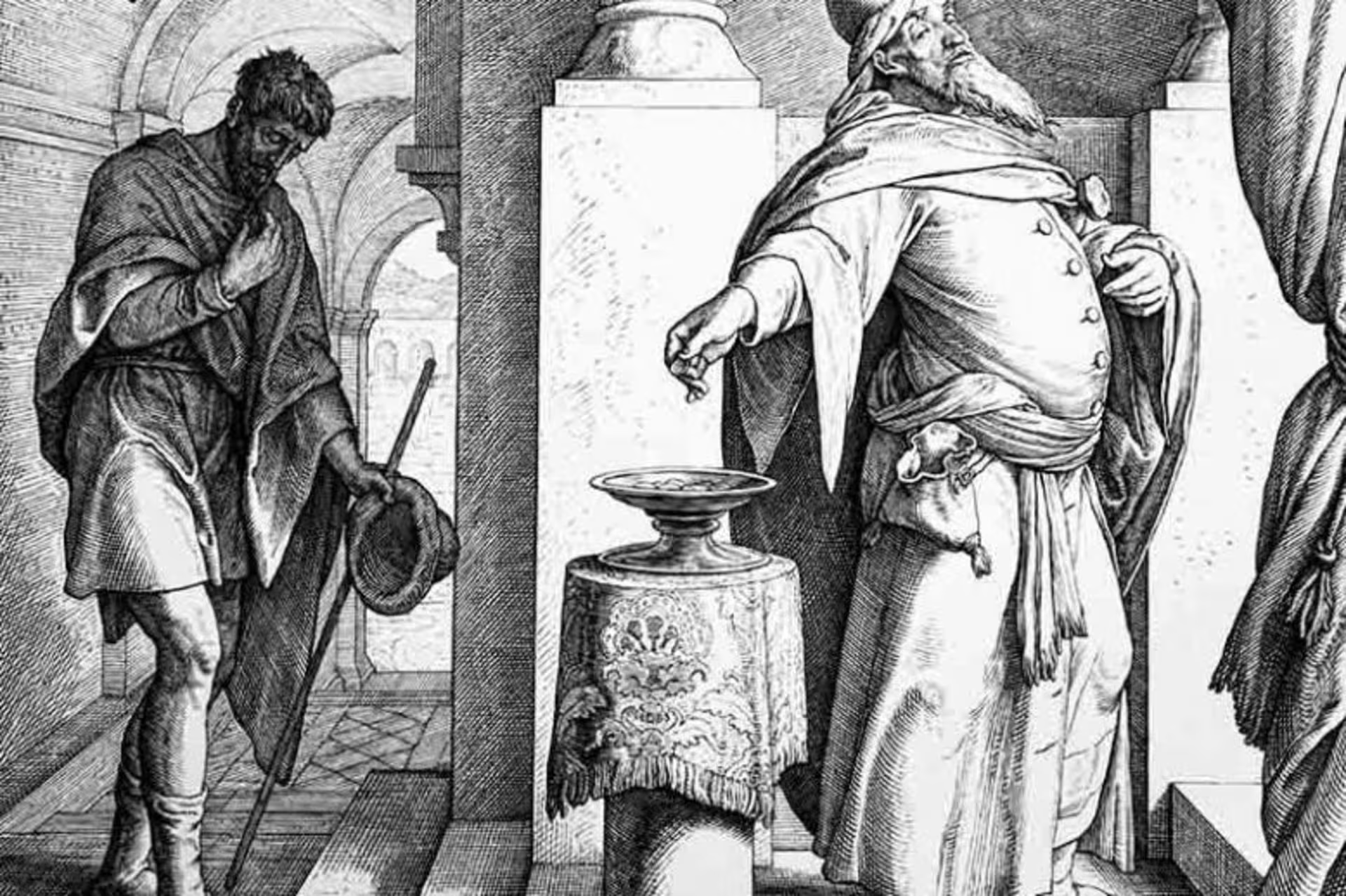Speak with a University Counselor today.
The views and opinions expressed in this article are those of the author’s and do not necessarily reflect the official policy or position of Grand Canyon University. Any sources cited were accurate as of the publish date.

Jesus presents us with two figures, both of whom had histories. People regarded Pharisees as the best of the best, shining examples of law-keepers in a dark time. People regarded tax collectors as enemies, sell-outs who stole money from God’s people to give to Rome (and to line their own pockets).
And yet the hero of this parable is clearly, though unexpectedly, the tax collector.
Why is that?
If we let the parable speak, the only “right” that the tax collector has done is his prayer, with its humble posture and wording. In other words, he has made a travesty of his life.
Yet, all he has to do to be justified is to declare what is so obviously true: He is a sinner in need of mercy.
Over Memorial Day weekend, the news broke that Josh Duggar, of “19 Kids & Counting” fame, was resigning from his job as a result of allegations of sexual misconduct.
While the blogosphere has had its expected reactions (and overreactions), I happened to be reading a parable of Jesus that seems very pertinent to the Duggars situation, and I cannot help but think of the situation in terms the Pharisee and the publican (or tax collector) from Luke 18:9-14.
Enter the Duggars.
Many conservative Christians praised this family of reality television fame for very similar reasons that first century Jews praised the Pharisees: They got it right. They were faithful. They protected themselves from the dangerous world of first century Palestine or 21(See disclaimer st) century America. The name, Pharisee, after all, means “separated one,” and this separation from cultural norms is what earned the Duggars an ongoing reputation of doing life the right way.
Thus, when I would hear the Duggar family speak of their methods for raising children in purity, I would hear similarities between the Duggars’ self-evaluation and the Pharisee’s self-evaluation. Some of the reaction to the allegations confronts this very spirit; after all, people will say, this family set themselves up to be a perfect family, so now they deserve to face judgment for their failures.
Yet, should we all really be shocked whenever it comes out that, yes, they too are fallen human beings? In the worst way, I feel that we are witnessing the truth of Jesus’ words: “For all those who exalt themselves will be humbled” (Luke 18:14).
People also feel that Josh Duggar has not adequately paid for his alleged offense, either by his seeming lack of punishment or by his seemingly weak apology. Yet, to go back to the parable, the tax collector has a seemingly weak apology as well. This publican also faces no punishment; in fact, he goes home justified, right with God!
While it does not seem like the finest example of humility, Jesus promises: “those who humble themselves will be exalted” (Luke 18:14).
Perhaps we expect much more penance than God ever does when it comes to forgiveness.
What has the Pharisee done that is so wrong?
Certainly, he seems to be boasting in the parable, but, if we withhold judgment, does he not have some justification to do so? He really has done the good he claims to do, and he even gives God thanks for his hard work.
Yet, Jesus points out in the parable that God wants our honest, broken, wrong, dead-to-ourselves self, and He will not be satisfied with anything else, no matter how dressed up, together, right or alive we appear to be. His justification of us comes despite, not because of, ourselves.
In the end, Josh Duggar (like all of us) seems to be a bit of both the Pharisee and the tax collector. So his and the Duggars’ question for the parable seems to be: What should Pharisees do whenever it is revealed that they, too, are sinners in need of mercy?
Jesus’ teaching seems to indicate that they should approach God in humility, with no defenses or qualifications or justifications of their own. They must not bring any of their legitimately good works or their earned reputation; rather, they must bring the truth about themselves, sins and all. They must confess their need for mercy from Jesus, the same mercy He died and rose to give to all.
In other words, they must die to their old self, including their “perfect family” identity and their good works, as they follow Jesus. (And we all should be willing to forgive them, even if we do hold them to necessary consequences.)
I will stop there. To expound on what should have been done or what should be done now would take more than this little blog.
I merely want to take an opportunity to remind Christians that:
Read more about forgiveness and the importance of faith in, “But I’m a Good Person, Isn’t That Enough?”